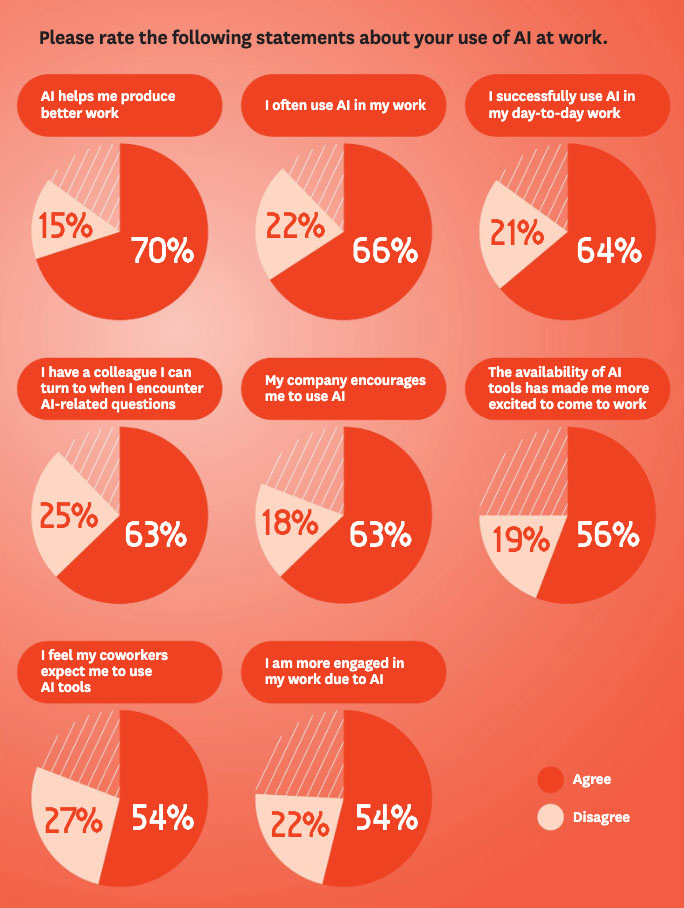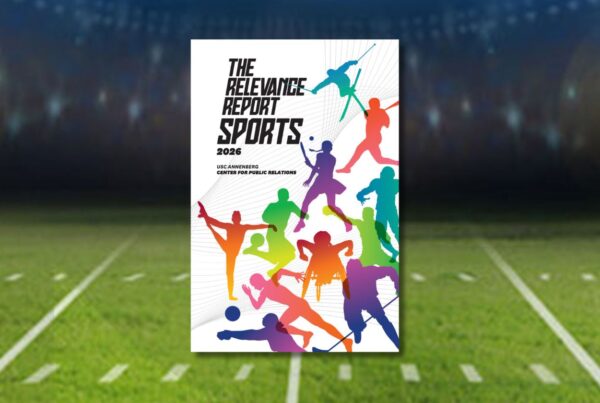Artificial intelligence (AI) has evolved from an experimental tool to a transformative force reshaping industries. One sector where this shift is extremely evident is marketing and communications, where AI can redefine how brands engage with audiences, analyze trends, and streamline operations. However, this evolution is not without its challenges, from ethical considerations to the need for thoughtful integration into existing workflows.
The USC Relevance Report 2025, released a few days ago, is dedicated to exploring AI’s role in communications and provides an essential roadmap for marketers and CMOs navigating this dynamic landscape. By drawing on insights from leading industry professionals and research findings, the report highlights both the immense potential of AI and the strategic steps organizations must take to harness it effectively. As the race to adopt AI continues, understanding its nuances is key to leveraging it as a driver of efficiency, innovation, and creativity. Here’s what marketers need to know to thrive in this AI-driven era.

AI Adoption Is Gaining Momentum Across Organizations
Marketers and communicators are embracing AI faster than ever before. AI is invaluable in everyday tasks, from generating content to analyzing trends. According to the report, two-thirds of communications professionals use AI regularly, and a significant majority view it as a tool to create better, faster work.
Takeaway: AI is no longer optional. Evaluate which parts of your team’s workflows can benefit most from automation or AI-driven enhancements to improve productivity and output quality.
Leadership Is Key to AI Success
The report emphasizes the role of leadership in driving AI adoption. Organizations with leaders championing experimentation and fostering innovation are seeing the greatest benefits. Building a culture of trust and providing opportunities for trial and error is critical to unlocking AI’s full potential.
Takeaway: As a marketing leader, create an environment that encourages your team to explore AI tools without fear of failure. Leadership buy-in can make or break AI integration efforts.
AI Enhances Efficiency Without Replacing Creativity
While AI is excellent for tasks like data analysis and drafting content, the report reinforces that human creativity and emotional intelligence remain irreplaceable. AI should augment human capabilities, not replace them. By automating repetitive tasks, AI allows marketers to focus on strategic thinking and storytelling.
Takeaway: Use AI to streamline administrative processes, freeing up your team’s time for creative and impactful work.
Data Is the Driving Force Behind AI’s Impact
AI’s effectiveness depends on the quality of the data it uses. Organizations that invest in data management and analysis are better positioned to leverage AI for targeted strategies and actionable insights.
Takeaway: Ensure your organization has the proper infrastructure and practices to collect, clean, and manage data effectively. This is the foundation for AI’s success.
AI Creates Opportunities for Proactive Reputation Management
With billions of online interactions occurring daily, monitoring brand sentiment and managing reputation is more critical—and complex—than ever. The report highlights tools that use AI to analyze sentiment, detect emerging risks, and enable rapid responses.
Takeaway: Incorporate AI-powered tools into your brand monitoring efforts to avoid potential crises and maintain control of your narrative.
Experimentation Drives Innovation
AI’s role in communications is still evolving, and the report emphasizes the importance of iterative learning. Organizations that pilot new tools and adapt based on results are seeing the greatest returns, and whether testing AI for content generation, audience targeting, or trend analysis, a culture of experimentation is essential.
Takeaway: Start small with pilot projects to test AI applications in your marketing strategy. Use these experiments to refine your approach and scale successful initiatives.
Ethical Deployment Is Critical
As AI adoption grows, so do misinformation, bias, and data privacy concerns. The report stresses the need for transparent governance and ethical frameworks to guide AI’s use. Responsible AI practices not only build trust but also mitigate risks.
Takeaway: Establish and communicate ethical guidelines for AI usage within your organization. Transparency and accountability are essential for maintaining stakeholder trust.
As marketing transitions into an AI-driven era, the opportunities are immense, but they come with challenges that demand thoughtful navigation. The USC Relevance Report 2025 provides a roadmap for leveraging AI not just as a tool for efficiency but as a catalyst for creativity, innovation, and ethical progress.
The path forward requires marketers to think boldly and act strategically. This means fostering a culture of experimentation, investing in robust data practices, and ensuring transparency and accountability in AI implementation. As AI continues to reshape the marketing landscape, its real potential lies in how human ingenuity combines with technology to create more personalized, meaningful, and impactful engagement.
The future of marketing is one of ongoing discovery. AI will continue to evolve, bringing new capabilities and challenges. For marketers, the question is not whether to adopt AI, but how to do so responsibly, strategically, and with purpose. By balancing technological advances with core values of creativity, trust, and ethical integrity, marketers can redefine what’s possible in this dynamic, transformative era.
The race to leverage AI is not about being first; it’s about being thoughtful. Those who approach it with curiosity and care will lead the way, setting a new standard for how brands connect with their audiences and drive meaningful change.






